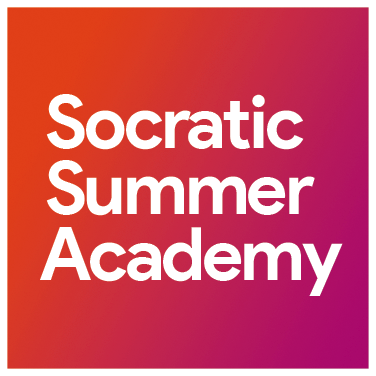How Socratic Summer Academy Has Changed Since 2010
Socratic Summer Academy has changed a lot throughout the years in response to changes in our students, curriculum, and the test more broadly. In 2012, we eliminated homework.
We also added more games throughout the day - both academic games where students reinforce the concepts they’ve learned and games that let them relax and bond with each other.
Our curriculum changes each year as we learn more about the test and in response to what students have trouble with. Whether it’s a full redesign or more minor tweaks, we keep our curriculum as up-to-date as possible.
Alyssa Bowlby, Our Executive Director On How SSA Has Change Since Starting in 2010
In 2012, we eliminated homework
For starters, we’ve become smarter in how we structure the day—how we organize the program, minute by minute.
For example, in 2012, we eliminated homework. Sounds crazy, right? As teachers, we’ve always been taught that more homework is better, and homework is how students learn.
Most SATⓇ programs - and we did this in the past - assign homework that students do at night, but we all know there are problems with that system.
Students don’t always use the right strategies (they forget); they forget the questions they have about their homework by the time they get to class the next day; they don’t do the homework.
So we decided to ask: is this really the most effective way to both teach and ensure our kids are relaxed, well-adjusted, and motivated?
In 2012, we switched it up: we added an hour or so of class time each day, and then allotted blocks of time after each class when we gave students specific assignments that reinforced what they had just learned.
Homework was hurting the camp part of SATⓇ camp: students couldn’t relax during free times or let loose during the capture the flag. So we designed a new schedule which maximized the effectiveness of every classroom minute, eliminated homework, and made camp better, both for students’ scores and well-being.
Over the years, we’ve added more games to the schedule so students are playing throughout the day
While we were at it, we added interactive games before class time to warm up the students (like opening acts in a concert), sports and game breaks to break up the the day, and test-related games during evening programing - we really believe in the importance of gamification!
We also made sure that each class had at least 2 teachers so that we could divide the class into small groups, take students one on one, and make learning faster.
We’ve become better teachers
More broadly, after all this time, I think we’ve all become better teachers - more able to understand instantly and intuitively what a kid needs, what she’s not getting, and what’s really behind the question she just asked.
As a private tutor, I've had more time to try different strategies that worked better and worse with different kids; I've met more kids with impediments to their learning in a variety of ways and figured out how to get around them, get over them, get through them.
I've seen more curricula and had more time, in redesigning ours (whether it's a complete redesign, as it was for 2014, or a series of tweaks, as it has been in previous years), to figure out what works and what doesn't.
What makes a kid a good reader? A fast reader? Do those crazy speed-reading methods really work? I've now had more time to answer those questions, having taught now for over ten years, and I bring all of that to leading as well as teaching, and try to pass it along to our assistant teachers as well.
We try to create an atmosphere with small-groups, so that no question goes unanswered, and there's no one whose needs we aren't meeting, and we try to create a feeling between students and teachers that the teachers are humans - quirky, intelligent, funny, neat, well-informed, and, honestly, inspiring.
As we garner more experience - both the wounds and the lessons that come out of it, as we attract more talented people, as we further revise our curricula, as we have more summers under our collective belt, we also become more confident that we can get score improvements with less effort—and we have gotten more score improvements. Our average score improvement has risen each summer; we imagine it will continue to rise.













